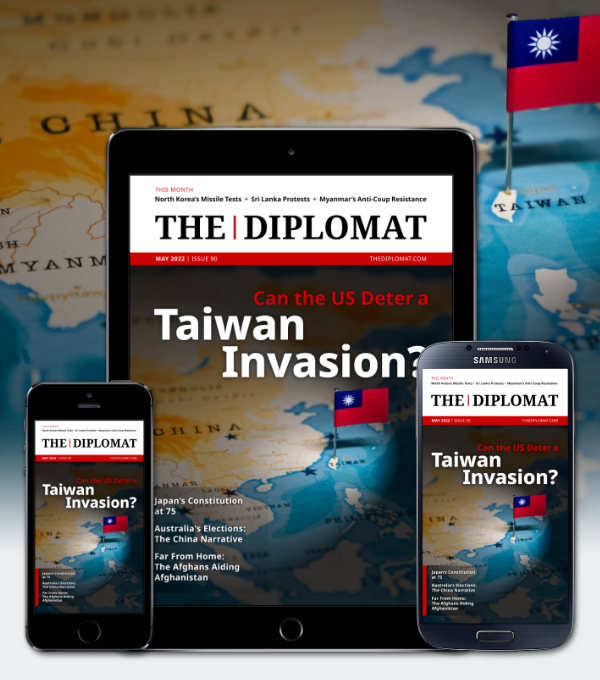| Welcome to the latest issue of Diplomat Brief. This week our top story examines the trade-offs accompanying infrastructure development in Nepal’s remote Mustang region. We also have an interview with Gi-Wook Shin, the director of the Walter H. Shorenstein Asia-Pacific Research Center at Stanford University, on the legacy of the Gwangju Uprising in South Korea. |
| Story of the week |  | Society In Nepal, New Roads Threaten an Ancient CultureWhat Happened: The Mustang region of northern Nepal, once an independent kingdom, has long been famed for its natural beauty, Tibetan Buddhism-influenced culture, and remoteness. New roads, however, are changing that last characteristic: A highway now connects Mustang to the rest of Nepal and to China. The new roads, in turn, are sparking debates about the benefits and costs of connectivity in hard-to-reach places. Our Focus: “Tourism gave us a source of income, not just trek leaders and Sherpas, but cooks, teahouse operators, and shopkeepers,” says Dara Gurung, the president of Muktinath village municipality in Mustang, who also owns a hotel in Kagbeni. Dara told The Diplomat the roads have also brought access to health care and other modern necessities. But traditionalists warn about “culture erosion” with “modernity seeping into the region,” and still others point to the negative impact on Mustang’s fragile Himalayan environment. It’s not only the roads themselves, either; increased connectivity makes Mustang more attractive to those interested in setting up logging or mining projects. What Comes Next: Nepal is in a hurry to create roads, Dipak Gyawali, a political economist and former Nepali water resources minister, tells The Diplomat. But the government has not conducted studies on these road projects, so there is no way of assessing whether the benefits are worth the environmental and social costs. Meanwhile, local people just wish someone would ask them for input on the projects remaking their community. “Who is making the decisions for us people from the corners?” one resident laments. Read this story |
| Behind the News | INTERVIEW Gi-Wook ShinGi-Wook Shin – the director of the Walter H. Shorenstein Asia-Pacific Research Center and the founding director of the Korea Program, both at Stanford University – on the national consensus around the Gwangju Uprising: “There certainly exists a nostalgia among some conservatives in South Korea who believe that leaders like Park Chung-hee and Chun Doo-hwan did well in improving the nation’s economy, while being authoritarian. Yet even those people would not contest the tragic nature of the uprisings and their aftermath.” Read the interview |
| This Week in Asia | Northeast Asia China’s FM on South Pacific TourFresh off sealing a security deal with Solomon Islands, Chinese Foreign Minister Wang Yi is visiting that country, along with other Pacific Island states, over the next two weeks. Starting on May 26, Wang will visit a whopping eight countries – Solomon Islands, Kiribati, Samoa, Fiji, Tonga, Vanuatu, Papua New Guinea, and Timor-Leste – along with hosting a multilateral foreign ministers’ meeting in Fiji. Amid reports that China is seeking other security deals like the one it signed with Solomon Islands, Australia, the U.S., and others will be paying close attention to the trip. Find out more | South Asia Hindutva Activists Seek Take-over of Another Historic MosqueEmboldened by a court decision that allowed a Hindu temple to be built on the site of the 16th century Babri Masjid, Hindutva activists are claiming that yet another mosque – the 17th century Gyanvapi mosque in Varanasi – was built on the ruins of a Hindu temple and thus should be returned to Hindu control. It’s part of a larger trend that has seen Hindutva forces question India’s rich Islamic heritage – including the famed Taj Mahal. Find out more | Southeast Asia A New Era in Southeast Asia’s Relations with Australia?This week, Australia elected a new Labor government that has plans to deepen Canberra’s outreach with Southeast Asia. During the campaign, Prime Minister Anthony Albanese pledged to appoint a senior envoy for Southeast Asian regional affairs and to offer the region an additional A$470 million in aid. At the same time, Albanese’s foreign minister, Penny Wong, has been critical of the crude Cold War analogies that characterized the Morrison government’s approach toward the region. A lot needs to be done, but the new government in Canberra is in a good position to craft a more productive, less alienating approach toward the region. Find out more | Central Asia Trouble in Tajikistan's EastSix months after protests in Gorno-Badakhshan Autonomous Oblast (GBAO) over the killing of a local man by security forces triggered, among other things, an internet shutdown, Tajik authorities have cut the region off again amid renewed protests and a harsh crackdown. Find out more |
| Visualizing APAC |  | While much of Shanghai remains under various degrees of lockdown, new testing kiosks have appeared around the city, hinting at the long-term plan for reopening: near-daily PCR testing. See the full picture |
| Word of the Week | DIPLOMACY امپورٹڈ حکومت نامنظور“Imported Hakumat Na Manzoor” (meaning “Imported Government Is Rejected” in Urdu), former Pakistani Prime Minister Imran Khan’s slogan calling for his supporters not to recognize the new government of Shehbaz Sharif. Find out more |
|  |





